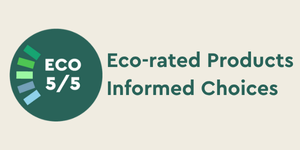Not all Plastic is created equal
2. NOT ALL PLASTIC IS CREATED EQUAL.

Plastics are classified into 7 categories according to Resin Identification Codes (RIC). They are differentiated by the temperature at which the material has been heated, and their numerical classification (#1 – #7) only informs you what type of plastic it is. For example:
- #1 (PET), ex: water bottles — highest recycling value; keep out of the sun to prevent toxins leaking into the container (no bueno for your health).
- #7 (OTHER) is the catch-all category. It includes non-recyclables and corn-based plastics (PLA). (As a consumer, you can’t tell the difference.)
What it doesn’t tell you:
1. HEALTH EFFECTS: plastic has been linked to disrupting hormonal growth and carcinogens. While its use is also associated with public hygiene and preventing bacteria contamination (many Taiwanese, for example, use plastic straws to drink everything from beer to milk out of fear of a contaminated supply chain), consumers should be wary of chemicals leaching into food or drink products.
According to the Science History Institute, “[c]urrent health concerns focus on additives (such as bisphenol A [BPA] and a class of chemicals called phthalates) that go into plastics during the manufacturing process, making them more flexible, durable, and transparent.”
Most experts agree that you should stay away from #3 PVC (often found in pipes) and #6 PS (Styrofoam, often used as food/drink containers).
2. HOW IT’S MADE: Did you know that most plastics originate from crude oil? Only plastics labeled PLA are made from the sugars in corn or other plant-starches like cassava.
3. RECYCLABILITY: Oftentimes we just throw things away into the recycling bin with the full faith that theywill be recycled just because the label says its recyclable. But that’s not always the case.
Moreover, there are 2 types of plastics: thermoset vs. thermoplastics. Thermoplastics are plastics that can be re-melted and re-molded into new products, and therefore, recycled. However, thermoset plastics “contain polymers that cross-link to form an irreversible chemical bond,” meaning that no matter how much heat you apply, they cannot be remelted into new material and hence, non-recyclable.
“WHILE SO MANY PLASTIC PRODUCTS ARE DISPOSABLE, PLASTIC LASTS FOREVER IN THE ENVIRONMENT. IT WAS THE PLASTICS INDUSTRY THAT OFFERED RECYCLING AS A SOLUTION.”
https://blog.nationalgeographic.org/2018/04/04/7-things-you-didnt-know-about-plastic-and-recycling/
Posted: Thursday 19 December 2019

